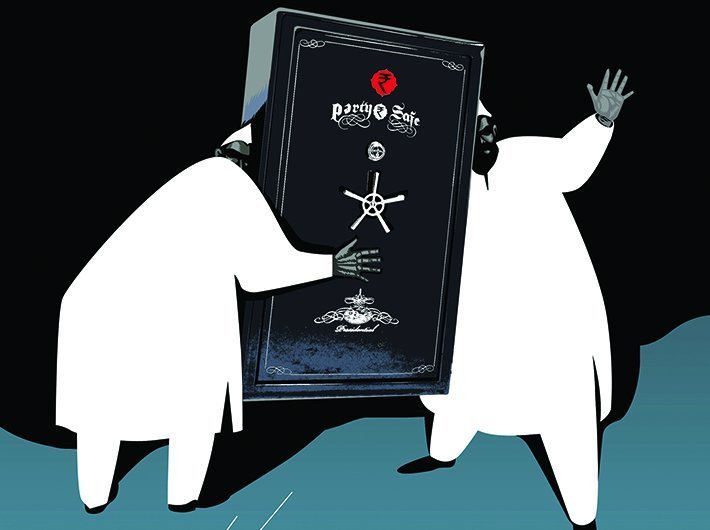Bringing transparency in funding of political parties is part of the larger electoral reforms
The government has given the final touches to the electoral bonds scheme, which promises to reform political funding.
The draft norms prepared by the union finance ministry say that each political party would have to open designated accounts for this purpose, with one or two banks being mandated by the RBI for issuing the bonds, which would have to be redeemed within a month or so, reported
Indian Express citing senior government officials.
On the face of it, the electoral bonds look like an effort to promote legitimate funding of political parties. But, there is a catch.
The election commission on May 20 told the parliamentary standing committee on Law and Personnel that electoral bonds introduced by the government is a retrograde step as it would compromise transparency in political funding.
"The amendment in section 29 C of the Representation of the People Act, 1951 making it no longer necessary to report details of donations received through electoral bonds is a retrograde step as transparency of political funding would be compromised as a result of the change," reported
NDTV citing the commission.
So, it is abundantly clear that the attempt to reform the political funding will come to a nought if transparency is not maintained.
There is no doubt that political parties need a lot of money to perform various functions and contest elections.
Besides expenditure of office establishment, full time-workers, agitations, propaganda and travel, parties have to organize election campaigns. However, the funding of political parties is quite hazy, with little being known about their finances.
The national commission to review the working of the constitution in a consultation paper on review of the working of political parties specially in relation to elections and reform options
noted that many political parties and candidates have been found to be using dubious methods in raising funds, like kickbacks, funds from foreign countries and even from donations by mafia gangs and other non-desirable elements.
“How to let the parties get honest funding from legitimate sources for their basic and continuing political activities has emerged as one of the most crucial contemporary concerns of the reform agenda in respect of the functioning of political parties in India,” it said.
The consultation paper had also said that any proposals for reforms concerning political funding should revolve, among other things, around the following five main objectives: (i) reducing the influence of money by diminishing its impact (by shortening campaigns, establishing ceilings on expenditure and limiting individual contributions); (ii) improving the use of money by investing it on more productive activities for the sake of democracy, and not just squandering it on propaganda and negative campaigns; (iii) stopping, or at least curtailing, as much as possible, current levels of influence peddling and political corruption; (iv) strengthening public disclosure and transparency mechanisms with respect to both the origin and the use of funds; and (v) promoting fairer requirements for elections, particularly concerning access to the media.
Arun Jaitley in his
budget speech 2017 had announced: Amendment to the Reserve Bank of India Act to enable the issuance of electoral bonds in accordance with a scheme that the Government of India would frame in this regard.”
Electoral bonds hopes to, in a way, address the issue of cleaning up the finances of political parties.
One important element is whether donations made by corporate houses through these bonds would be disclosed to the election commission or not. It is no longer necessary.
Under section 182 of the
Companies Act, “a company, other than a government company and a company which has been in existence for less than three financial years, may contribute any amount directly or indirectly to any political party. Provided that the amount referred to in sub-section (1) or, as the case may be, the aggregate of the amount which may be so contributed by the company in any financial year shall not exceed seven and a half per cent of its average net profits during the three immediately preceding financial years.”
Election bonds as an idea is welcome, but its implementation leaves much to be desired.

